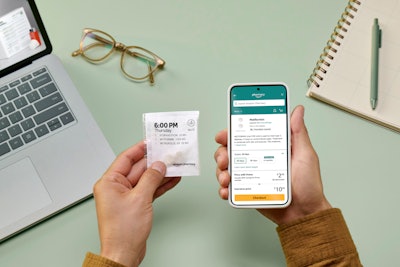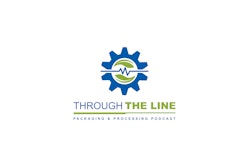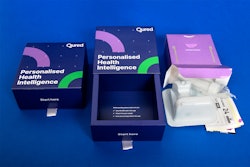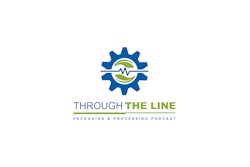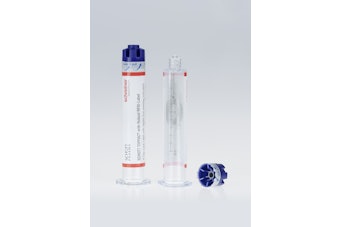Key Takeaways:
· The American Heart Association estimates that more than half of medications prescribed today for patients living with chronic diseases are not taken as directed.
· When enrolled in PillPack, customers receive monthly shipments of daily tear-away packets that are personalized and labeled with each medication (and its dosage).
· Each packet identifies a specific time and day of the week (with the calendar date included) for each medication to ensure proper organization of all meds.
The algorithm that defines the causes of medication non-adherence is complex, but easy to decode. Escalating prescription costs. Lack of healthcare literacy. Fear of side effects. Simple forgetfulness. These are just a few of the most common deterrents that affect the willingness and the ability of many patients to follow their prescription regimens.
According to the American Heart Association, it is estimated that more than half of the medications prescribed today for patients who are living with chronic diseases are not taken as directed. When considering that 66% of all adults in the United States are said to currently have active prescriptions, the resulting estimation is that approximately one-third of all U.S. adults are not correctly and safely medicated. Further complicating matters is that as the overall aging adult population continues to grow, the likelihood that people will be prescribed more drugs for more chronic conditions is also increasing.
“And chronic conditions typically mean there’s a need for multiple medications,” says Hedva Barenholtz Levy, PharmD, BCPS, BCGP, director of HbL PharmaConsulting, a private consulting organization in St. Louis, MO. “With multiple chronic conditions, you also likely have multiple physicians involved in the patient’s care. There are times when a patient might have contradictory instructions, or simply just many instructions overall, which can also make things more complicated.”
While there’s no single prescriptive “cure” for one of the more persistent, pervasive issues facing today’s healthcare system, there are strategies for helping patients to become more consistent with obtaining their medications and following their directions through adherence programs that assist in the delivery and sorting of multiple medications. From community pharmacy programs to digital applications, there is estimated to be more than 400 types of pharmacy-based interventions available to address medication adherence by offering services related to the ordering, packaging, and delivery of prescription drugs.
Perhaps most prominently among these options is PillPack, a full-service pharmacy acquired by Amazon Pharmacy in 2018 that combines convenient packaging, advanced technology, and personalized service to deliver prescriptions. In an announcement this past fall, Amazon officials announced its launch of a now integrated PillPack feature and the company’s goal of improving adherence among eligible patients by enrolling customers in a program that is designed to process prescription orders, sort and package drugs, and deliver them to patients’ homes more quickly and at reportedly lower costs for a more simplified experience. But there might be more needed to reversing the trend of non-adherence and alleviating the stigma associated with being prescribed daily medications.
“There needs to be a program around adherence that makes delivering medications and the packaging that they’re delivered in to work together,” says Chad Worz, PharmD, BCGP, FASCP, chief executive of the American Society of Consultant Pharmacists (ASCP). “It’s not just the packaging that makes something that can be delivered by courier or by mail [more effective for adherence]. That’s just one part of an adherence program.”
Despite the ongoing adherence challenges that are always expected to exist, both Worz and Levy believe there’s potential for the industry to effectively serve patients in this manner with appropriate collaboration and communication.
An Evolution of Adherence Programs
As one who has led his organization for seven years, is board certified in geriatrics, and has worked in the long-term care pharmacy space his entire career, Worz has seen what he describes as a small but evident evolution among adherence programs that is consistent with the overall population shift.
“We’re definitely in a period now where we’re rapidly becoming more sophisticated with how we look at drug regimens,” says Worz. “We’re recommending medications based on the setting where patients live as the population ages. People want their independence and to age in place at home. We’ve seen an evolution of shifting pharmacy services to meet that type of demand, which is where the adherence packaging comes from, the delivery services come from, and having a pharmacist involved in reviewing your medications comes from.”
This last component is especially important, says Levy, who with her consulting service predominately works with older adults in their homes to conduct medication reviews, patient education, and assistance with any existing or potential medication-related problems. Her one-on-one interactions with patients and their caregivers are essential for adherence even with programs like PillPack that are intended to mitigate or eliminate them altogether.
When enrolled in PillPack, customers receive monthly shipments of daily tear-away packets that are personalized and labeled with each medication (and its dosage) that identify a specific time and day of the week (with the calendar date included) for each medication to ensure proper organization of all meds. This process is also intended to avoid multiple pill bottles and encourage a routine. The packing service is free with the program and includes a monthly delivery of a pre-sorted roll of medications as well as 24/7 access to a pharmacist.
“I’m inspired by the simplicity and ease that PillPack provides,” says John Love, vice president of Amazon Pharmacy. “Every day we’re working to make the pharmacy experience more convenient and more affordable for customers.”
Requirements & Processes For Program Inclusion
While Amazon’s customers have the opportunity to self-enroll in PillPack, program eligibility is dependent on the patient currently being prescribed to at least three medications regularly. Insurance coverage is verified as a part of enrollment in addition to one’s prescriptions. By the nature of requiring three or more medications, Levy suggests that Amazon is targeting a valid cohort but also reaching a particularly vulnerable population. She estimates that most of her patients require medications for approximately four health conditions at any one time. Diabetes and heart failure are commonly among these chronic conditions.
“That alone will require numerous pills,” she says. “And that’s where polypharmacy begins to add up. There are certain health conditions that are more medication intensive. Heart failure medications can tend to be adjusted more frequently. Hypertension might also require more than one medication.”
The need to take multiple medications can also cause confusion with knowing when to take particular pills, depending on the health and the age of the patient, said Levy, who has also authored the book Maybe It's Your Medications: How to Avoid Unnecessary Drug Therapy and Adverse Drug Reactions. “Is there cognitive impairment? Are there any issues with vision? These are the types of factors that can play into someone’s ability to safely take all of their medications as instructed.”
Increasing Confidence With Technology & Safety of Delivery
Delivered in recyclable dispensers that are designed to fit on countertops, in drawers, or on a shelf, PillPack’s packaging is food-safe, free of Bisphenol A, and waterproof to protect product against spills or humidity. Amazon officials also say that they’ve established a secure protocol that confirms the correct pills are dispensed by pharmacists into the correct packets at all times. There are no methods to guarantee that products can remain completely safe from unexpected consequences such as accidental damage, theft, or extreme weather conditions. Still, Worz said he is overall comfortable with how delivery services function for those patients who don’t have better options for medication access.
“Whether it’s a mail delivery or a courier delivery, I think we’re at the point where we can have some degree of confidence that meds are stored appropriately until they get to your house,” he says. “But there isn’t any pharmacist who dispenses any medication who has any control over where those meds are in a patient’s house or wherever they may have stored their medications. Storage and handling are as much a concern in the house as it is getting from the pharmacy to the house.
Worz also believes that the presence of technology has also earned its place in this aspect of patient care. “I think people who are very comfortable with technology,” he says. “From a drug packaging perspective, you don’t have to be technology savvy [to participate in these programs]. That said, he and the ASCP also believe that the industry should formulate appropriate reimbursement on the pharmacy side for these types of programs.
“We advocate that people are aging into a category where they need these advanced services at home,” he explains. “And there should be payment mechanisms so that pharmacies can provide these services, such as deliveries, compliance packaging, and periodic medication reviews – all of this should be part of either Medicare reimbursement or reimbursement that comes from an insurance company.”
Addressing Concerns for Comprehensive Care
Although advanced technologies continue to become more comfortably integrated into all aspects of today’s healthcare delivery, both Worz and Levy say that certain precautions need to be emphasized and that there’s no substitute for one-on-one encounters between patients and clinicians.
“We can’t fully automate healthcare,” says Levy. “You need to have the personal interactions. We have to monitor medications – meaning the effectiveness and their side effects. Patients have to be able to take note of how they’re doing. If they have a new symptom or side effect, there could be a medication issue. Only the patient knows day to day how they feel.”
As part of the PillPack program, Amazon officials confirmed that a pharmacist reviews all listed medications for potential drug interaction issues before any delivery is processed, but Levy is still uneasy about the long-term experiences for patients in any program that does not include an in-person relationship. “One would think that eventually there will be changes to medications,” she says. “I’d have concerns if there’s numerous changes with a patient’s medication or dosage. I know that programs are designed to handle this, but it’s still one of my concerns. I believe people should be doing what they are comfortable with, but we all need to have our eyes wide open. Everyone’s situation is different. There are some many iterations of situations that could occur.”
Moving forward, Worz says he anticipates that any adherence program will need to continuously evolve regardless of how many new safeguards are introduced. “Like everything else, if there’s one thing that’s consistent with the older-adult population it's that there isn’t a lot of consistency,” he says. “We needed personalized care because everyone is different, and so we need vastly different services to meet the needs of the patients we’re in front of. It’s the old adages around healthcare being local, patient-centered, and making sure we have systems that can adapt to each individual.”
